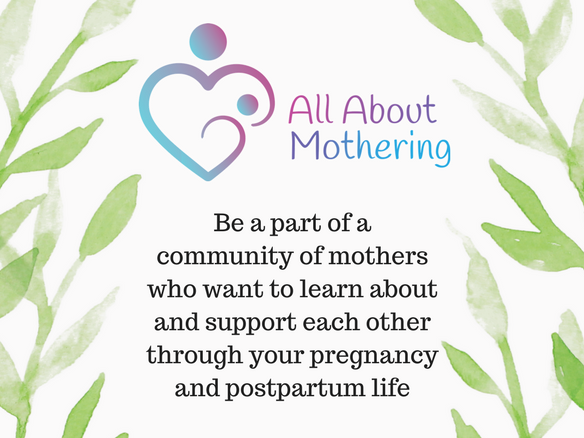Episode 195
The Impact of Postpartum hemorrhage on breastfeeding – BIRTH MATTERS SERIES
Postpartum hemorrhage! Excessive blood loss within the first 24 hours of birth.This can cause grave complications and even maternal death.
Yikes!
A subject that many shy away from. I think we can all understand why. It is scary stuff. According to the CDC it is one of the leading complications causing maternal death in the United states, along with pregnancy related hypertensive disorders and infection.
This particular show is not about the details related to this birth complication per se. Rather I will focus on how pph can affect breastfeeding.
Excessive blood loss after a birth is managed differently based on the moms symptoms and how much blood loss there was. However, as lactation consultants, asking about your birth is a very important part of the work we do so we can help you the best.
You may have read that it is often recommended to keep your baby skin to skin after the birth, allowing your baby easy access to the breast, when they are ready to feed. This is because breastfeeding causes the release of the hormone oxytocin. You might remember that oxytocin is a very important hormone that you hear a lot about during your pregnancy and in preparation for birth. It also is a very important hormone when it comes to breastfeeding too.
In the early hours and first few days after your baby is born, oxytocin is released when you are breastfeeding, helps to shrink your uterus back to its normal size after birth. This whole process takes several weeks, however, the sensation of your uterus contracting after birth, which is often called afterpains, is felt most during the very early few days of breastfeeding. With each baby, your uterus is stretched out that much more and whoa baby, after my third baby was born, at home, an unmedicated birth, the afterpains were so incredibly strong, I swear if I didn’t know any better it felt like I had another baby to birth. I felt like I needed pain meds just to deal with them they were so strong. It’s a good thing my midwife had a few tricks up her sleeve to help me deal with these heavy duty contractions as it would have greatly affected my ability to stay in that natural high after birth.
In any event, keeping your baby close and breastfeeding, well this is the single most common way to help control uterine bleeding after a normal uncomplicated birth. Their are extenuating circumstances that could cause pph, a few of which might be a tear of the uterus or perhaps all of the placenta was not delivered. If I were to be giving a lesson in pph, I would go into much more detail about symptoms, causes, management, and consequences, however, for right now I am going to focus on a common reason why pph causes a delay, a low supply or no supply. Now how many of you knew that pph can cause you to not make milk for your baby? If you said no, you are not alone. Most moms are quite surprised when I tell them this.
I am referring to a medical condition called Sheehan’s Syndrome and its affect on the pituitary gland. First let’s talk a little about the lovely, very small pea sized pituitary gland. It plays a major role in regulating vital body functions. It is often referred to as the body’s master gland because it controls the activity of most other hormone-secreting glands. As far as where it is located, it is described as sitting in the sella turcica, which means turkish saddle, a bony hollow in the base of the skull, underneath the brain and behind the bridge of the nose. It has two parts and the posterior pituitary gland is actually part of the brain and it secretes hormones directly into the bloodstream. The reason this is important to know is that the pituitary gland produces prolactin, which acts on the breasts to induce milk production. Basically put, you can begin to see that damage to this gland can have a great impact on milk supply.
Now getting back to Sheehan’s Syndrome. This is a form of shock that can result from severe pph and hypotension. In this condition, the mother’s blood pressure drops so low that blood fails to circulate to the pituitary gland. This now causes some or all of the cells in the pituitary gland to stop functioning permanently. The mother will have some colostrum in her breasts that have been there by about the 20th week or so of pregnancy. Because of the malfunctioning pituitary gland, however, her breasts will remain soft after delivery and she may not be able to produce any milk. The damage to the pituitary gland is usually irreversible and may permanently rule out the prospect of making milk.
The reason this is significant is that the severe blood loss or extremely low blood pressure can damage the pituitary gland, destroying hormone producing tissue so that the gland can’t function normally. Sheehan’s Syndrome is likely to shut down production of prolactin. Severe blood loss can affect the pituitary gland perhaps causing enough damage to cause a low supply or a delayed supply, but not necessarily no supply.
Since Sheehan’s Syndrome is rare, you might be wondering why I am bringing it up at all. I want to do all I can to empower mother’s to be a partner in their health care While you are certainly not expected to know all that I might know about the study of lactation, there are a few key points you can be aware of if you are suffering from low or no supply. I want you to have just enough information to make the connection so that when you see your lactation consultant or care provider, you will not leave out this important information. I want you to have enough information so that you are not like a few moms I have met with over the years.
They are at home breastfeeding their baby, with their baby continuing to lose weight. They are pumping, taking expensive supplements, drinking tons of water, eating foods that they think will help to increase supply, power pumping, seeing a few providers and unfortunately the connection was not made between severe pp blood loss and its affect on her supply.
In the last 20 years, I may have met a handful of moms who were diagnosed with Sheehan’s Syndrome. They were actually quite sick and severely fatigued pp, which made breastfeeding nearly impossible the first few days and quite difficult while they were getting their strength back. And yet, wanting so desperately to breastfeed, they are using every bit of strength they can muster and sadly noone has had a conversation with them about the impact their diagnosis has had with breastfeeding. Had they known, and worked with an IBCLC, the outcome may have been different. Perhaps we could have maximized their time with baby at the breast and avoided severe weight loss.
I have met many, many moms who suffered excessive loss, however, not quite enough to warrant a transfusion. Amazingly enough, some of these moms had birth trauma, coupled with excessive blood loss and yet, there bodies had no delay in the milk making department and no problem with volume. Other moms were not so lucky and they suffered greatly with these two issues.
In every consult that I provide, I always ask about the birth, if there were any complications. My probing further will depend on her answers to that question. If mom tells me about severe blood loss or mentions pph, I will ask her if she had a transfusion. If she did, this means that her level of blood loss were out of the range of normal and this, while perhaps not causing the degree of damage that Sheehan’s likely will, it may very well alert me to the fact that her increase in milk volume may be delayed or slow to increase. Knowledge of a transfusion and little to no milk in a mom who, after taking a history and determining that there is no known cause for her lack of milk, will send me in another direction. All I need for you to know is that excessive blood loss in the immediate postpartum period is something you will want to highlight if your supply is delayed or quite low. You don’t need to have suffered a pph for this to happen.
I also do want to make the distinction that the blood loss I am referring to happens within the first 24 hours. I am not referring to lochia, which is normal vaginal bleeding that occurs the first few weeks after the birth. The amount tends to be heavier the first few days and begins to taper off the second and third week. I am purposefully not detailing volume or color as this can vary from mother to mother based on many things. What is most important is for you to be aware of this distinction. It is my job to be observant and ask the right questions. As an IBCLC, I need your help in providing accurate information so that I can think clearly about all the possible reasons for causing the problems that you came to see me about.
 Lori Jill Isenstadt, IBCLC is a huge breastfeeding supporter. She has spent much of her adult life working in the maternal health field. Once she became turned on to birth and became a childbirth educator, there was no stopping her love of working with families during their childbearing years. Lori became a Birth doula and a Postpartum doula and soon became a lactation consultant. She has been helping moms and babies with breastfeeding for over 25 years. Lori founded her private practice, All About Breastfeeding where she meets with moms one on one to help solve their breastfeeding challenges. She is an international speaker, book author and the host of the popular itunes podcast, All About Breastfeeding, the place where the girls hang out. You can reach Lori by email at: aabreastfeeding@hotmail.com or contact her via her website: allaboutbreastfeeding.biz/contact
Lori Jill Isenstadt, IBCLC is a huge breastfeeding supporter. She has spent much of her adult life working in the maternal health field. Once she became turned on to birth and became a childbirth educator, there was no stopping her love of working with families during their childbearing years. Lori became a Birth doula and a Postpartum doula and soon became a lactation consultant. She has been helping moms and babies with breastfeeding for over 25 years. Lori founded her private practice, All About Breastfeeding where she meets with moms one on one to help solve their breastfeeding challenges. She is an international speaker, book author and the host of the popular itunes podcast, All About Breastfeeding, the place where the girls hang out. You can reach Lori by email at: aabreastfeeding@hotmail.com or contact her via her website: allaboutbreastfeeding.biz/contact 
Listen Here
Submit a comment
your email address will not be published








